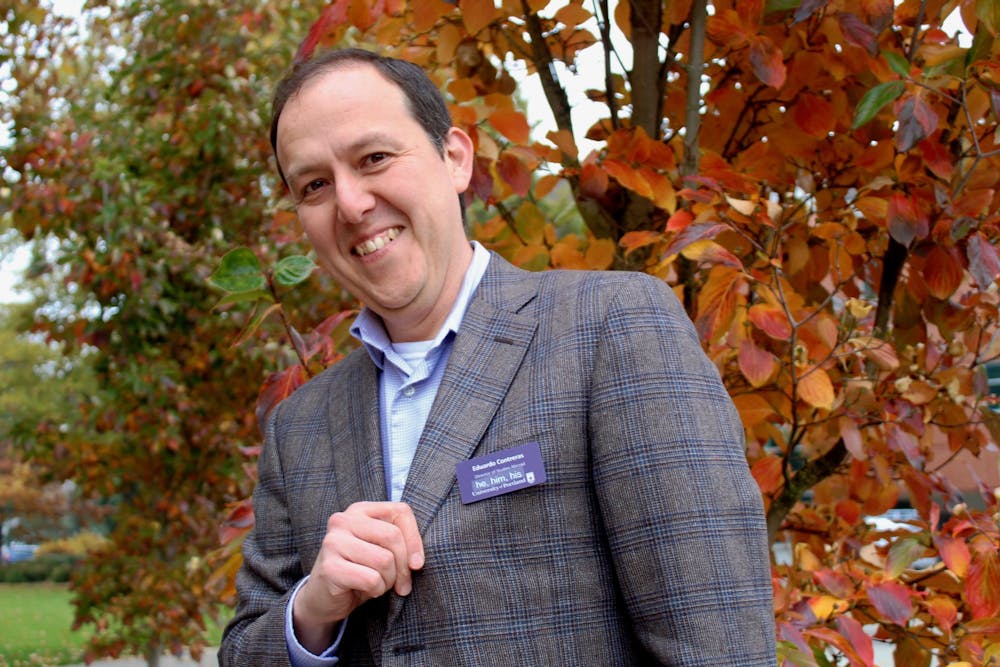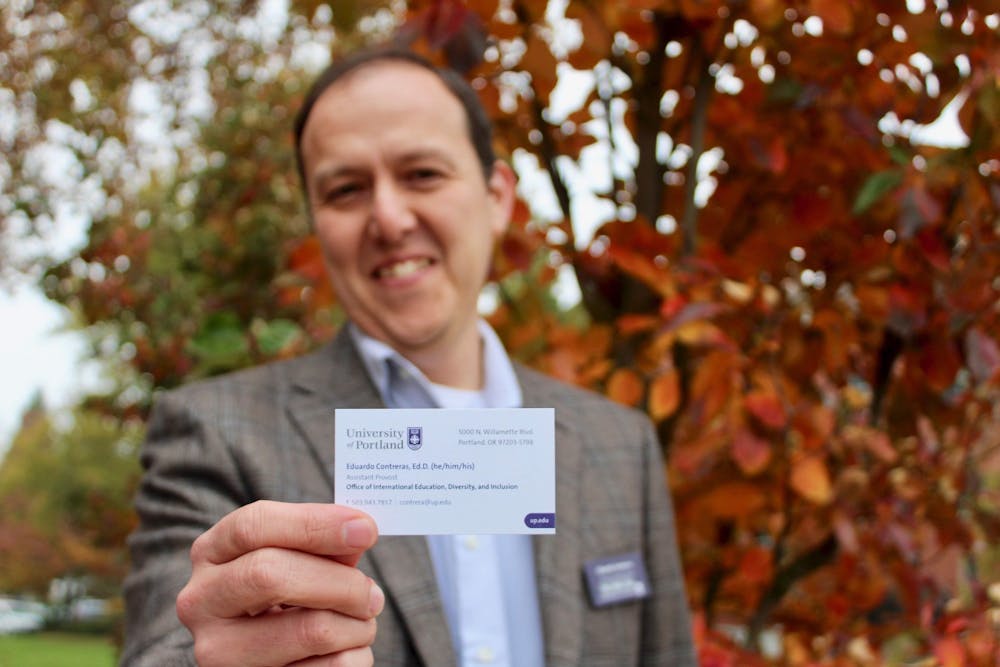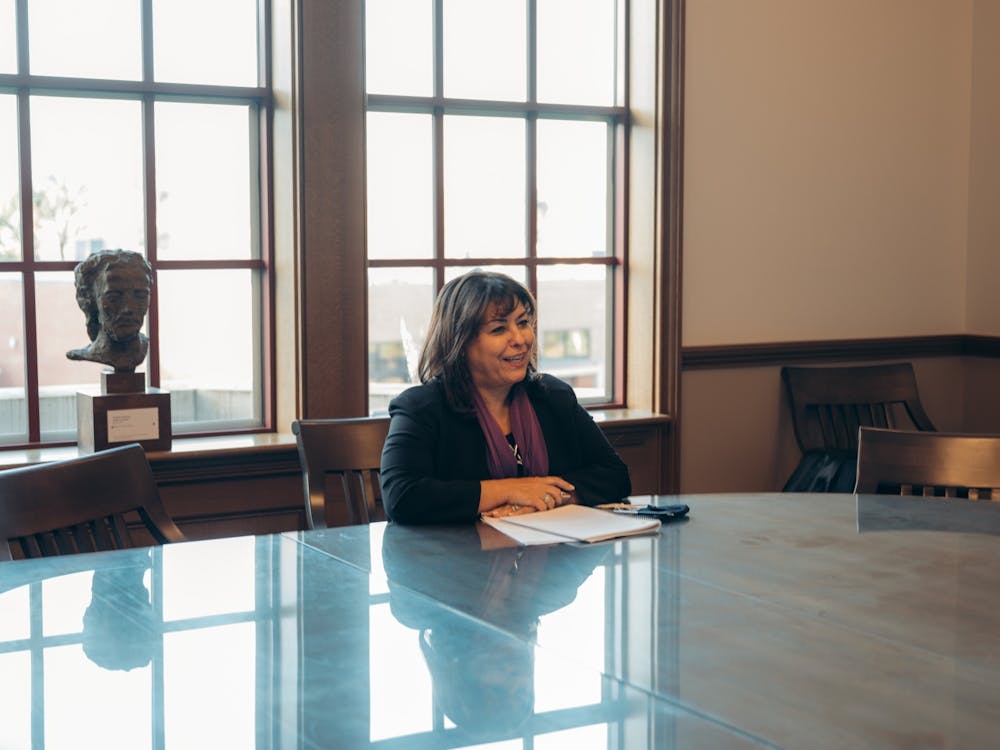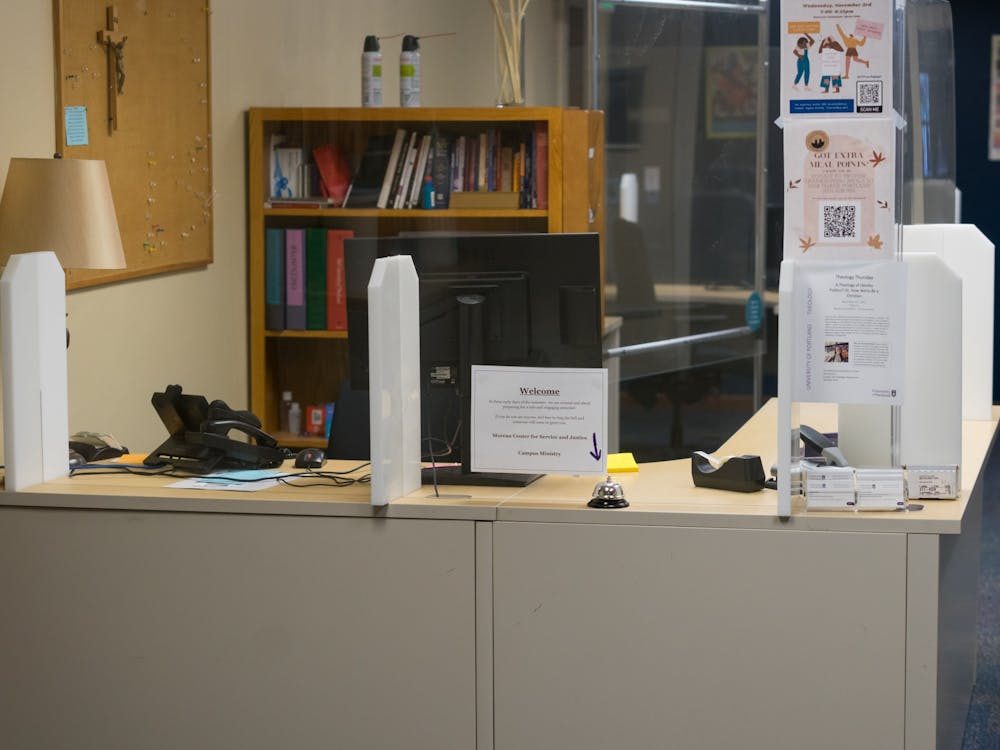Chances are, you learned the golden rule in kindergarten, which says that you should treat others the way you want to be treated. But you might not have heard about the platinum rule, which says that you should treat others the way they want to be treated. This is the basic idea behind the practice of sharing pronouns and allowing others to share how they would like to be identified, according to Alexandra Hill, co-director of the gender and women’s studies program.
At the end of last semester, the University of Portland Printing and Mailing Services incorporated the platinum rule by creating the option to include pronouns on staff business cards as a way to be more inclusive and respectful of transgender and non-binary individuals.
Eduardo Contreras, assistant provost for international education, diversity and inclusion, has been working for the past year on creating a business card template that includes pronouns. The new template was approved in a President’s Leadership Cabinet this semester. Contreras explained that the addition of pronouns to business cards is a huge step to making a more inclusive campus for students of all gender identities.
“When I hand out my business cards to campus visitors or at conferences, it sends the message that we care and we honor people’s identities,” Contreras said. “I also work with international partners and some countries have not adopted the practice of sharing pronouns and some people ask me why we do that, to which I say that the University of Portland believes it’s important to see people in the way they see themselves.”
You can’t always tell someone’s preferred pronouns by looking at them and individuals may go by a host of pronouns, including he/his, she/her, they/them or ze/hir, so it is important to ask what pronouns someone prefers.
UP has seen an increase in both staff and students using their preferred pronouns in everyday conversation, as well as in their email signatures over the past few years.

Dr. Eduardo Contreras kick-started the idea of including preferred pronouns on business cards.
“Some staff include their pronouns in their email signature, name plaque or in conversations in the classroom,” Contreras said. “But this is a way to be inclusive on another surface and to show that at UP, we are mindful to not make assumptions about one’s gender identity. By sharing my pronouns, it gives others the opportunity to tell me how they would like to be identified.”
Sarina Saturn, associate professor of psychology, was among one of the first professors to place her order for the new business cards. She said that using pronouns is in line with UP’s core values.
“I feel like there is a moral obligation as a teacher to create a safe and inclusive space for everyone,” Saturn said. “Using pronouns in our everyday language is a small change that makes a big difference for marginalized people. As a university that’s committed to human dignity and honoring life, I think this is a real opportunity for us to put those values into action by responding to what these communities are asking of us.”
Saturn emphasized the importance of normalizing sharing pronouns.
“We put our degree after our name on a business card because it signals to others how we want to be identified and recognized,” Saturn said. “Adding gender pronouns next to our name falls seamlessly under that. It helps us to tell others how to refer to us and to identify others in the way they want to be identified.”
Alice Gates, professor of social work, held a workshop for staff about the importance of using pronouns after the change to staff business cards. The workshop quickly became a standing room only event and fostered important, vulnerable, yet challenging conversation, according to Gates. She discussed the distinction between sex, gender identity and gender expression, and how to avoid assumptions about gender.
Gates emphasized the importance of listening to people’s pronoun preferences as a way to show respect and inclusion.
“As humans, all we want is to have our existence validated,” Gates said. “A big part of that existence is how we view ourselves as gendered or non-gendered beings. Sharing pronouns in conversation and including them in business cards creates a space where people feel affirmed for who they are and seen in all their complexity.”
Hill expressed concern with staff being hesitant or resistant to including their pronouns in their classrooms and on their business cards.
“Transgendered and non-binary individuals may not feel recognized in a classroom, especially if some professors assume they’re teaching a classroom full of cisgender students,” Hill said. “It’s an easy thing to share your pronouns and if someone’s pronouns don’t match their gender expression, then I’m glad we had that conversation. If everyone’s pronouns match their gender expression, then it’s important to become aware that that isn’t a reality for everyone.”
Saturn, Gates and Hill all said this is a small change that makes a big difference for trans and non-binary students. This community experiences significantly higher rates of mental illness and suicide than other members of the LGBTQ+ community and cisgender populations. Normalizing sharing pronouns through business cards is just one change to make trans and non-binary individuals feel accepted and recognized for who they are, according to Gates, Saturn and Hill.
“It’s a small change with no cost to cisgendered people,” Gates said. “We may not even know the full impacts of this change. If we are dedicated to UP’s mission of responding to the needs of the world, then this moment is a signal that the world is demanding change, and we are stepping up to be a more inclusive campus by adding pronouns to our business cards.”
Catherine Cieminski is a reporter for The Beacon. She can be reached at cieminsk22@up.edu.








